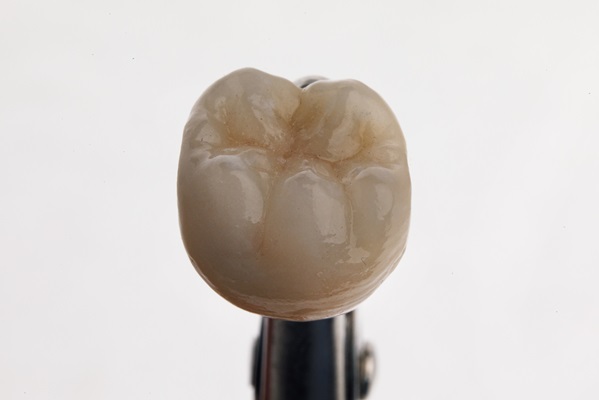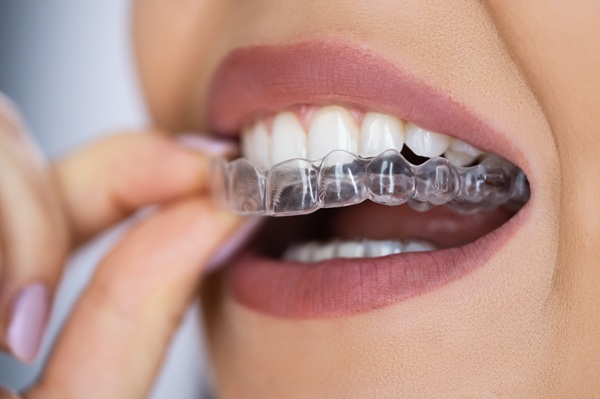What Materials Are Used to Make Dental Crowns?

Individuals suffering from damaged or unsightly teeth may benefit from receiving dental crowns. This straightforward and relatively common procedure can help restore the look and function of healthy, natural teeth. While a variety of components may be used to form dental crowns based on the patient's individual preferences and needs, the installation process is usually the same for most people.
Types of materials used to create dental crowns
There are several different substances that can be used to form permanent dental crown coverings. A dentist will usually offer guidance to help the patient make a well-informed decision based on cost, necessary function and health history.
Metals
Some dental crowns are made from stainless steel or other metal alloys. These can include the following:
Metal crowns are the sturdiest choice and tend to last the longest when compared to other options. However, they can be unsightly and expensive when precious metals are used. Stainless steel is the most common metal selection for dental crowns and is often recommended for molars in younger children.
Resin or resin combination
Resin crowns are the most economical choice when it comes to composition. Also, the material more closely matches the color of natural teeth when compared to metals. However, resin is more likely to chip or crack over time. What patients may save in initial costs may eventually balance out in replacement procedures. In some cases, resin may be reinforced with stainless steel for more durability.
Ceramic or porcelain
Patients who want a more realistic finish should choose dental crowns made from ceramic or porcelain. These materials closely match the look of natural teeth and are known to be relatively long-lasting with proper care and hygiene. However, a porcelain or ceramic crown can cost a bit more up front. Still, these are a sturdy option for those with sensitivities to metals.
The process of installing dental crowns
Once a dentist has determined that a crown is the appropriate form of treatment for a patient, X-rays are typically performed to examine the overall health of the affected tooth or area. When the affected tooth is prepped and ready for the procedure, the dentist will reshape the tooth for a proper fit. Impressions of the newly shaped tooth are made and the permanent covering or crown is created to fit. While the permanent crown is being manufactured, a temporary crown may be placed for the waiting period.
Once the final crown is ready to be installed, it is cemented in place. While the area may be tender, the patient may begin eating most normal foods right away. Sensitivity is often the most common complaint during recovery, so patients should avoid extremely hot or cold foods and use sensitivity toothpaste. With proper care, most dental crowns will last an average of 10 years.
Conclusion
Dental patients with severely damaged teeth can utilize dental crowns to repair their smile. Whether made from metal, resin, ceramic or porcelain, these permanent tooth coverings are relatively simple to install and last for years with proper care. A dental professional can offer guidance towards the best choice based on medical history, budgetary concerns and aesthetic preferences.
Are you considering dental crowns in the Mobile area? Get more information at https://www.whitesmilecentermobile.com.
Check out what others are saying about our dental services on Yelp: Dental Crowns and Dental Bridges in Mobile, AL.
Recent Posts
Dental crowns are used for numerous reasons to benefit patients, and cosmetic dentistry is one of them. A crown is a synthetic replacement tooth that is placed over a damaged one to provide a more natural and uniform appearance in the mouth. Some dentists use crowns to repair damaged teeth, but they may also be…
A dental crowns, also called a cap, forms the tooth's outer covering, protecting the tooth from decay and damage. A crown does not eliminate the need to visit your dentist in the future; you will still need to have your teeth professionally cleaned and examined regularly by your dentist. However, it can certainly help restore…
Dental crowns are a great way to restore teeth that are in bad shape due to decay, damage or an injury. They provide individuals with a way to renew teeth so that they appear more aesthetically-pleasing, while also improving oral health and function. However, with each dental restoration, comes a few unknown things, which is…
Dental bridges are one of the top solutions to get back your smile after losing one or multiple teeth. Patients everywhere need tooth replacement due to a variety of reasons. Seeing your dentist regularly is the most effective way to prevent the loss of teeth. Your oral hygiene should be a number one priority in your…


